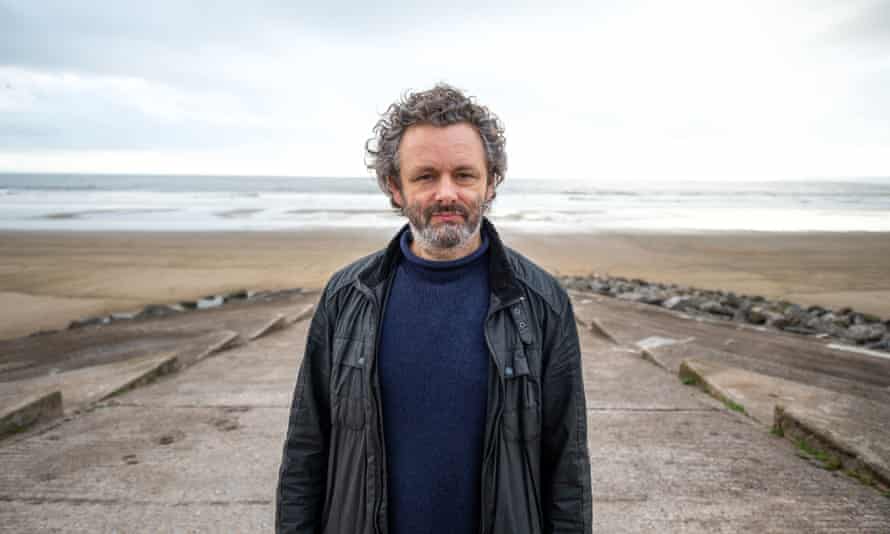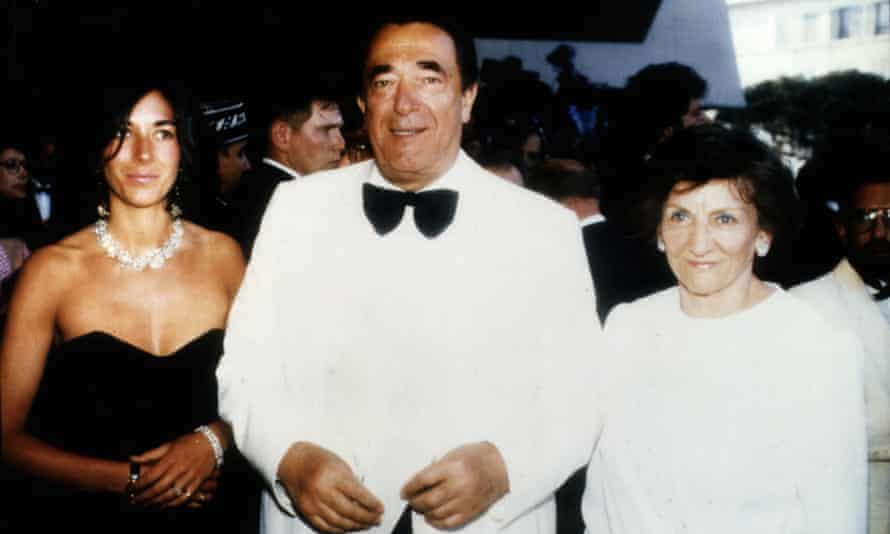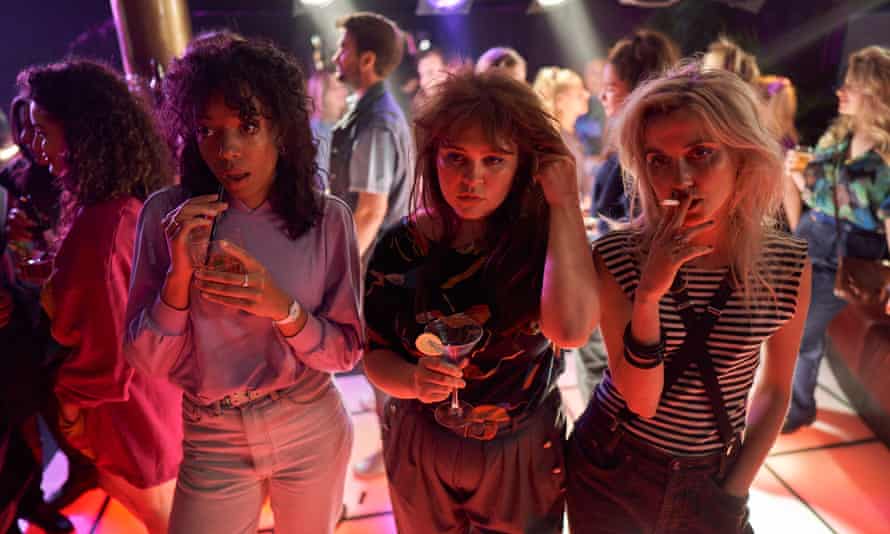
The week in TV: The Split; Art That Made Us; House of Maxwell | Television
The Split (BBC One) | BBC iPlayer
Art That Made Us (BBC Two) | BBC iPlayer
House of Maxwell (BBC Two) | BBC iPlayer
If there’s one thing I find heartening in a chaotic world, it’s the escapist thrill of watching a programme crafted by a creative talent at the very top of their game. Which is a roundabout way of saying: Abi Morgan’s The Split is back.
The last time we were in the company of the female-lawyer-dominated Defoe family, oldest sister Hannah had finally come clean about her affair with dashing colleague, Christie. Her husband, Nathan, moved in with Hannah’s youngest sister, Rose, and her endearingly nerdy partner, James. Rose then worried about her James splitting up, except they are the true sensible heart of The Split and would never. Middle sister Nina decided that she didn’t want to be with Rex, the father of her baby, and would raise it alone. Except that, technically, she wasn’t alone, because she started snogging Tyler (also a lawyer), who had just married a man. So, my choice of escapism appears to be quite chaotic, too.
The Split is unusual in that it’s a legal drama with barely a courtroom scene. Instead, the action takes place in enviable London townhouses, around kitchen islands with the same footprints as studio flats. Or in corner offices within touching distance of the Shard. The costume department works with an endless supply of Oxford shirts. It’s all fabulously and unapologetically glamorous, but the issues run the full gamut of life and love, among the Defoes themselves and their clients: weddings, affairs, miscarriages, drinking problems, estranged parents, snogging in swimming pools.
The opening episode of this third and final series has Hannah hovering her pen over her divorce papers and intermittently removing and reinstating her wedding ring. Unfortunately for her, Nathan seems to have moved on, which becomes abundantly clear when he presents his new girlfriend to her at dinner – a hot but sanctimonious child psychologist (“a kid shrink”) who refers to children as “little people”.
Nicola Walker – for years and years one of the best actors on British television screens – and Stephen Mangan continue to be superb, but everyone is. It’s testament to Morgan’s reputation and ever-sharp writing that The Split has attracted cameos from the likes of Anna Chancellor, Anthony Head and Meera Syal, who was particularly affecting in the last series. This opener includes the characteristic lightness (a countess with a penchant for BDSM) and the wrenching darkness: the episode ends with the unexpected death of a beloved character, which blows this final series wide open. All six episodes are available on iPlayer.
If great art is heartening, then BBC Two’s new eight-part series Art That Made Us, looking at the history of Britain via an entire sweep of the arts (literature, art, music, drama, design – the lot), is a balm. It sets out to credit the cultural achievements and relevance of all people of these isles, not just the dominant Anglo-Saxons: “History is always written by the victors, and it’s the Anglo-Saxons who won.” The actor Michael Sheen, in the opening episode, is one person who has long been keen to redress this imbalance, and gives a typically powerful performance of Welsh poetry.

Art That Made Us is the kind of programme the BBC and Channel 4 do so well; the kind of programme that, should the government’s attempt to privatise Channel 4 prove successful, would be at significant risk. Shareholders probably won’t have much time for the fabulous “medieval graphic novels in needlework” featured here.
Finally, to the Maxwell family – again – who you might, by now, be thoroughly sick of. Last year’s Epstein’s Shadow Sky documentary on Ghislaine – who last week had her retrial petition denied – was as thin as prison gruel. Its main talking head was Anna Pasternak, an Oxford contemporary whose actual connection to Maxwell seemed to amount to a passing nod at an end-of-term bop.

BBC Two’s three-part House of Maxwell, as its name suggests, focuses on the whole gang. The first episode covers the transformation of Czechoslovakia-born Ján Ludvík Hyman Binyamin Hoch from humble village lad to charismatic and control-freak media magnate Robert Maxwell, KGB and MI6 informer (bonus fact: also Mossad). Maxwell’s famous belligerence and competitive obsession with Rupert Murdoch is detailed, and there’s nothing new in that. But there are some interesting scenes; it helps that this was a man with such ego that he employed a camera crew to accompany him everywhere. In one clip he chastises the Mirror Group’s staff on its lack of women. He appointed Eve Pollard, who contributes here, as Sunday Mirror editor. (Lest this make Maxwell seem a feminist hero, his preference for working with women was, he once said, because he viewed them as “extensions of the boss”.)
The production team has pulled off the coup of gaining access to the panicked executive phone calls during the hours of Maxwell’s disappearance off his yacht in 1991 – although this is undermined by the cringey re-enactments. In truth, they don’t add much. (Most are variations of: “Where the hell is all the money?!”) Perhaps the best bit is Maxwell’s long-suffering secretary Carol Bragoli describing how she once overheard a conversation (I use the term loosely) between Maxwell and his daughter in which they miaowed at each other for a significant length of time. “Ten miaows,” Bragoli confirms, with a look that tells us she truly did see some things.
What else I’m watching
Jimmy Savile: A British Horror Story
(Netflix)
Frankly, I’m not watching this, as I’d rather swim in a sewer than spend five more minutes in the company of the shell-suited creep, but nonetheless this will be a talking point. News lines have mostly focused on the fact that Savile once produced a personal media relations “handbook” to help his royal friends. Judging by recent events it wasn’t very well read.
Dirty Lines
(Netflix)

I’m a sucker for a 1980s European-set drama, and Netflix’s much-anticipated true tale of the establishment of the first ever erotic phone line (conceived in Amsterdam, obviously) fits the bill. Backcombed hair, a new wave soundtrack, shoulder pads wider than a dual carriageway and orgasms dramatically rendered to rival Meg Ryan. “Welcome to the revolution, baby.”
The Boot Room Boys
(BT Sport)
I may be biased as a huge Liverpool FC fan, but any football, or indeed, sports fan should enjoy this look at the club’s unique heritage. Packed full of carefully curated archive footage and presented by the Farm frontman (and massive Red) Peter Hooton, The Boot Room Boys features former playing legends such as Phil Thompson, but also current heroes, and the current hero: Jürgen Klopp. A great watch to prepare for the club winning a famous cup quadruple this season. Which is definitely going to happen – sorry to all the fans of other clubs.
